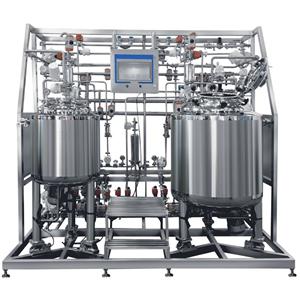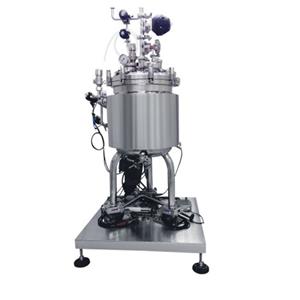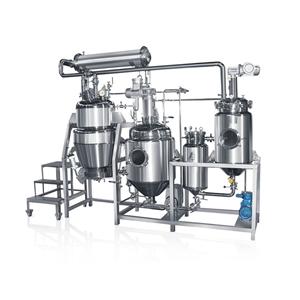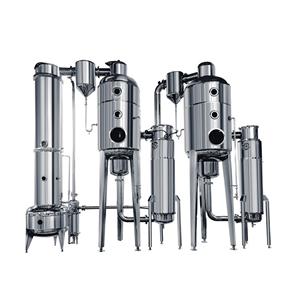CBD food is approved for the first time! Virginia will be just the beginning!
Nutra innovations Asia reported on the 22nd that Virginia passed a new law to recognize "industrial hemp extract" as food, allowing hemp extract including CBD (cannabis diphenol) to be sold as food, becoming the first state in the United States to explicitly allow "industrial hemp extract" as food.
Virginia's new law establishes a fund to promote the development of industrial marijuana. In the new law, the "industrial marijuana extract" has a new description: "industrial marijuana extract refers to the extract of cannabis plant with THC content not exceeding the federal law, which is used for human consumption. The industrial hemp extract is a food that meets the requirements of this chapter and the regulations adopted in accordance with this chapter. "
On December 20, 2018, trump signed the "agricultural improvement law" to legalize industrial marijuana and its extracts at the federal level (the law defines "hemp" as the marijuana plant with THC < 0.3%). After that, the States gradually introduced laws to legalize industrial marijuana, and farmers began to grow industrial marijuana.
In addition to industrial marijuana, 11 states and Washington DC have legalized recreational marijuana / adult marijuana (THC > 0.5%) and 34 states have legalized medical marijuana.
As a kind of industrial hemp extract, CBD has a high value in improving insomnia, pain, anxiety, depression and other aspects. In 2019, there is an upsurge of CBD products in the U.S. market, involving food, beverage, skin care products, health care products, pet food and other fields.
According to brightfield group data, the US CBD market in 2017 was only US $367 million, reaching US $591 million in 2018. It is estimated that the CBD market will exceed US $20 billion in 2022, with a compound annual growth rate of 146%.
Despite the booming CBD market, the U.S. FDA (food and Drug Administration) did not act, whether federal or state laws, and did not explicitly state that CBD / cannabis extract can be sold as a food / dietary supplement.
According to the natural products association, "Virginia is the first state to approve hemp extract as food, which legitimizes thousands of products for sale in the state, and also breeds a storm of similar laws in other regions."
FDA in the United States has been slow in formulating market regulations for CBD. In May 2019, FDA held a public hearing on CBD product supervision, but after the hearing, there was no progress. With the rapid development of CBD market, CBD products (including food) can be seen online and offline, and the US Congress has to urge the FDA to act quickly and allocate funds to support it.
On December 20, 2019, the United States further joint Appropriations Act 2020 (PL 116-94) was passed. The bill allocated $2 million to FDA to regulate the CBD market and required it to provide a CBD report to the funding committee within 60 days.
In March 2020, FDA submitted the CBD report and reopened the consultation channel to the society to encourage enterprises and individuals to provide more CBD information.
Industry observers say that novel coronavirus pneumonia and the 2020 presidential election will affect FDA's CBD regulation and it is likely to be pushed into 2022.
There are more and more CBD products in the U.S. market. FDA has reiterated that only one epidilex drug is approved for CBD products, which is used to treat Lennox Gastaut syndrome or epilepsy related to Dravet syndrome in patients aged 2 years and over.
The FDA still prohibits the addition of CBD to traditional foods and the sale of CBD as a dietary supplement. At present, for CBD food / dietary supplements sold on the market, as long as the enterprise does not declare that these products have medical efficacy, FDA will not intervene. FDA's current regulation of the CBD market is limited to issuing warning letters to a dozen enterprises, warning them not to declare their unproven efficacy.
Although Virginia's state law may only apply to products produced and consumed within the state, it is a milestone. However, because the FDA has not explicitly allowed CBD to be added to food, CBD food and beverage are still gray areas in interstate trade.
Industry people want to change this situation and are actively lobbying the state government to take measures to make up for the federal government's inaction. For consumers, CBD has been integrated into their lives, including beauty, diet, health care, fitness, sports and many other aspects.
At the end of 2017, who released a report that "no adverse factors have been found in CBD, and naturally generated CBD is safe whether used in humans or animals, and will not have a negative impact on public health."
In March this year, the sixty third session of the "United Nations Commission on Narcotic Drugs" was held in Vienna to discuss "who's proposal on the listing of cannabis and cannabis related substances", and consider opening CBD around the world. But given the complexity of the issue, a vote on the subject was pushed to December.
Despite the postponement of the who's vote on CBD, there is general optimism in the industry. More and more researches have found the application value of CBD in helping sleep, relieving anxiety, pain, inflammation, etc. the feedback of consumers on CBD in the market has gradually proved these potentials. The correct name of CBD may come late, but it is the general trend!




